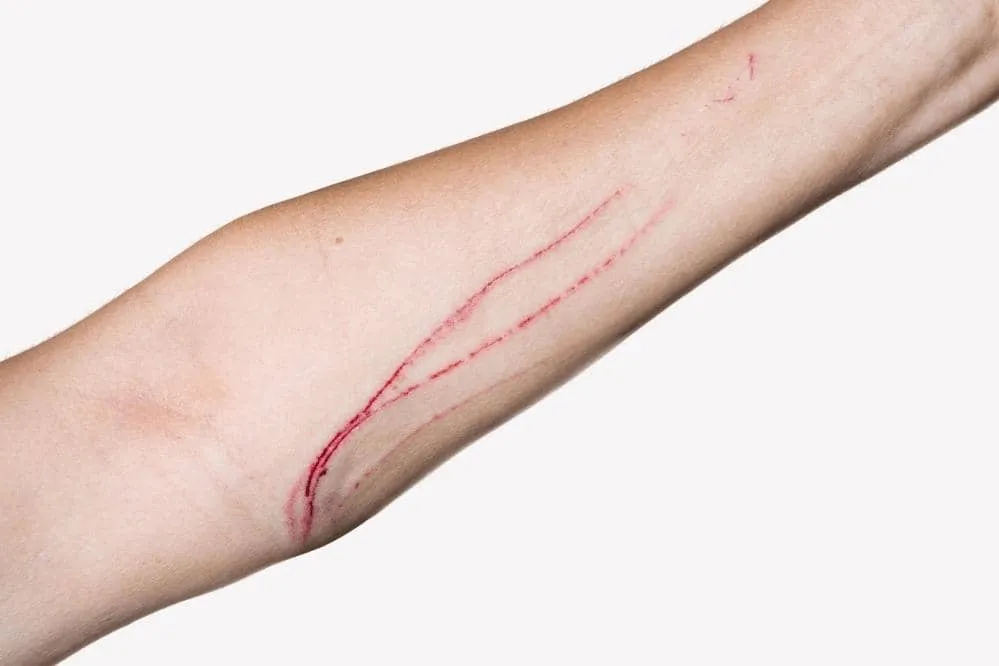What to do if a cat scratches you?

If your cat is scratching you, it’s often not due to any kind of aggression. Before getting upset with the cat, it’s wise to take a step back and think about why they scratched you. From there, you can work out how to solve the problem.
Yelling at the cat, or otherwise punishing it isn’t going to help. It will only make your pet more fearful of you.
Instead, read on and learn about why your cat might scratch you and what you can do about it.
Treat the Scratch
Treating the scratch is the first priority, as illnesses can come from an untreated scratch in some cases.
Stop the bleeding by putting pressure on the scratch. Once it slows down, carefully clean it and use an antibiotic cream to clean out any unseen germs. Finally, cover the entire wound with a bandage.
Consider the Reason
Most of the time, cats don’t scratch because they are angry or want to attack you. Instead, it may happen while they are trying to play with you. Cats may get over excited and play a little too rough. The good news is, this cause is one of the easiest to address.
In situations where your cat is angry or fearful, it’s a good idea to look for help. Often, they are just trying to protect themselves and need to be handled carefully.
Stop the Cause
You have plenty of options when it comes to keeping your cat from scratching you.
Because there are healthy choices, it should go without saying that you should never declaw your cat. It may resolve the problem, but it will also result in added health problems and a lower quality of life for them.
Instead, consider the following options.
Trim Their Claws
If you start when they’re young, trimming a cat’s claws can become a very easy task.
However, it can be more difficult if you are starting fresh with an older cat. Try giving it a shot. If your cat won’t allow you to trim their claws, then contact your vet for tips and guidance.
It may sometimes take two people to get the job done, but in time the process should become easier.
Give Them Exercise
Cats who are scratching you during playtime may just need better ways to work out their energy. Instead of playing with your hands, use some toys that keep your hands farther away.
Toys like teasers and laser pointers will allow you to enjoy playing with your cat with less worry about their claws. Once they’ve gotten enough exercise, they’ll be less likely to claw you due to a need to play.
Get Help
In rarer cases, some cats may claw out of fear or aggression.
If this is the case with your cat, seeking out vet help is the best way to go. Your vet will be able to help you figure out what is upsetting your cat and how to solve the problem.


